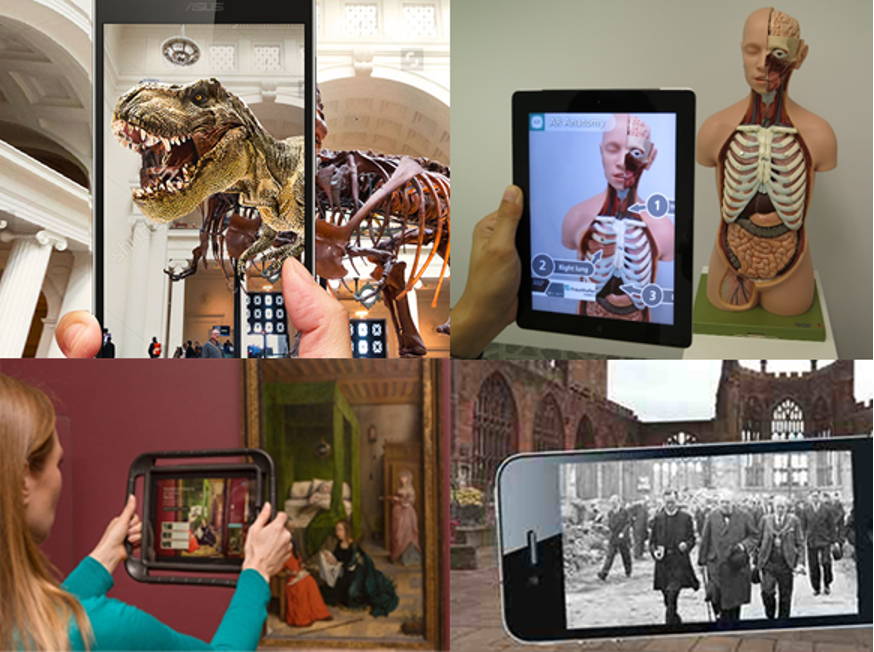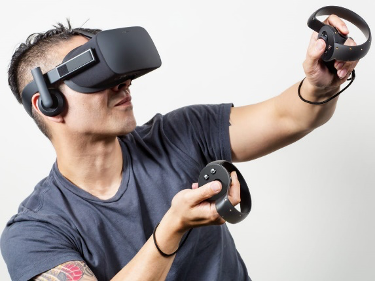Editor:
Brandon Sweet
University Communications
bulletin@uwaterloo.ca
New embedded wellness counsellors support co-op students

This is an excerpt of an article originally featured on the Co-operative and Experiential Education website.
Co-op students can sometimes face unique stress, pressures and feelings of isolation on work term (or during their recruiting term). To support these students, two new mental health staff from Campus Wellness will be available.
These counsellors understand the co-op program at Waterloo and are another great resource available to help resolve challenging wellness-related situations for students.
The counsellors provide 1:1 mental health support to prepare students for work terms, and ongoing phone or ‘virtual’ support during work terms. Students on a recruiting term will also be provided support.
It’s also important to note that these counsellors won’t be sharing information with co-op advisors or other staff.
Students will be able to start making an appointment with a co-op embedded counsellor in Fall 2020. This is just one area of focus to increase the amount of support provided to students. Additional wellness support resources have been added to our website for our co-op students to access. They include provincial support websites as well as resources to help students based on their needs. Current undergraduate and graduate students also have access to Empower Me, a mental health and wellness service which allows them to connect with qualified counsellors, consultants and life coaches for a variety of issues.
Co-op advisors vs. embedded counsellors
Embedded wellness counsellors provide mental health support for students on recruiting terms, work terms and in preparing for work terms. However, for other support or questions during your work term or finding your next co-op, you can reach out to a co-op advisor. Advisors can also help with finding a place to live or address concerns during your work term and about your co-op job.
Read the full article on the CEE website.
Virtual Reality and Augmented Reality: resources and community of practice

Various examples of augmented reality in action.
A message from the Centre for Teaching Excellence (CTE).

If you’ve ever seen someone doing what the young man on the right is doing, then you’ve seen someone immersed in virtual reality (VR). To an outside observer, it looks kind of strange. But to the person wearing the headset, it can be an intense and absorbing experience that allows you to see and “do” things you that you can’t easily do in the real world.
That’s what makes VR so compelling for educators: learners can observe, manipulate, or practice something in a distraction-free virtual space. At the University of Alberta, for example, Occupational Therapy students are using VR headsets to practice meeting with and assessing virtual clients.
VR doesn’t always require a headset. For example, last year CTE and CEL helped the Faculty of Environment develop a virtual reality version of a field trip to Waterloo’s spongy bog by using 360 VR and Virtual Tour technology. The resulting virtual tour can be viewed and explored on a PC’s web browser.
Associated with – but distinct from – virtual reality is augmented reality (AR). Essentially, AR is like placing a “layer” of information on top of the world in front of you. The GPS system in your car, for example, is a kind of AR. The four images below also are examples of AR, and all of them are evoked by pointing your smart phone or tablet at a specific target. In the first one, the AR layer is the “fleshed out” version of a dinosaur skeleton; in the second one, the AR layer provides names of organs on an anatomical model; in the third one, the AR layer provides information about the design and history of the painting; and in the fourth, the AR layer renders a historic image of Churchill walking through a bombed area of London over the “live” view of the same area.
Prior to the 2020 pandemic, VR and AR (collectively known as Extended Reality or XR) were gaining momentum across sectors such as healthcare, retail, manufacturing, construction, architecture, conservation, tourism, therapy, and education and research, to name a few. When aviation giant Lockheed Martin introduced VR to optimize employee training, training time was reduced by 85 per cent.
In the current context of remote teaching and learning – but also beyond that to when things return to “normal” – XR is a field that Waterloo could explore to enhance both online and in-class learning, and to help prepare students for future skills and work applications. The possibilities for development and application of XR technologies are myriad, though many challenges – such as cost and usability issues – remain.
Many instructors at Waterloo have already undertaken projects involving XR. Academic support units, too, are spearheading some XR initiatives. For example, CEL and CTE have developed an XR Information Site as a starting point to help the Waterloo community learn about the emerging medium through state-of-the-art examples of XR applications and research across subject areas, along with an overview of the opportunities and challenges of the medium. That information site will be launched in November and its URL will be shared in the next issue of In the Loop.
Additionally, the Waterloo AR/VR Community of Practice group, which was established in 2018 by CTE and CEL, facilitates sessions for faculty and staff who are interested in exploring XR topics and technologies in the emerging field. The most recent session, for example, was devoted to Google Hubs, a free platform for creating virtual meeting spaces that can be “visited” with either a headset or a web browser.
The frequency of the AR/VR Community of Practice sessions diminished after the advent of COVID-19, but efforts are underway to return to a consistent schedule. The next AR/VR Community of Practice session will take place in November, and details will be provided in the next issue of In the Loop. In the meantime, you can join the group or suggest future XR/VR topics by contacting Gillian Dabrowski (CEL) or Mark Morton (CTE), co-facilitators of the group.
Join the AR/VR Community of Practice.
Q and A with the experts: Environmental, Social, and Governance scores and COVID

The University of Waterloo has a number of experts available for comment on various aspects of the COVID-19 pandemic.
Environmental, Social, and Governance (ESG) scores are ratings of a company’s performance in relation to pressing societal issues such a climate change. Investors may use these scores to screen investment candidates or use them as one factor in a more integrated quantitative trading strategy.
Most people think that investing through an ESG lens will ensure that their stock holdings are more resistant to severe losses when the market crashs, like what has happened during the COVID-19 pandemic.

A recent research paper co-authored by Professor Elizabeth Demers, of the School of Accounting and Finance found that it may have been premature to conclude that ESG performance is an important resilience factor in times of crisis, such as the COVID-19 market crash.
Have ESG factors demonstrated share price resiliency in these times of uncertainty in the markets?
Although there is a lot of hype surrounding the alleged share price resilience of firms scoring highly on ESG performance metrics, particularly during the Q1 2020 COVID-19-induced market meltdown, our study shows that ESG is not a determining factor for returns once fundamental measures of performance, intangible asset investment, and financial flexibility have been considered.
In other words, contrary to widespread claims that ESG is a determinant of better stock returns during periods of crisis, we show that firm and industry fundamentals drove returns during the COVID-19 crisis, not ESG performance.
How has your research shed light on the issue of policy change to have clear, substantiated reporting of ESG factors for public companies?
Our study made use of a well-established third-party ESG database to capture ESG performance. We did not use company-provided measures. As such, our research doesn’t speak to the policy issues related to firm disclosures of ESG measures, which remains a very important issue that is currently evolving rapidly.
What are the arguments to invest in companies that have high ESG rankings?
There is academic evidence to suggest that, over the longer-run, the equities of firms with higher ESG ratings will outperform their counterparts. A recent Royal Bank of Canada survey indicates that 70 per cent of respondents in Canada believe that ESG-integrated portfolios can generate long-term sustainable profits.
Personally, I believe in a value-based approach to investing and to doing business. Reputation is important in business. So, I think that it’s reasonable to expect that, in the longer-run, companies that treat their employees and society well will be more successful. And numerous studies support this notion. With respect to the environment, as the climate situation is becoming more desperate, companies that are ahead of the curve in developing greener products and processes will benefit as the risks (including those related to legislative changes) continue to increase. Furthermore, there is at least anecdotal evidence to suggest that more values-driven companies attract more talented and committed employees, leading to a virtuous cycle. The arguments in favor of good governance are even more long-standing and obvious – quite simply, better-governed firms produce better results.
Elizabeth Demers is a Professor in the School of Accounting and Finance. Her recent research interests are related to the role of non-financial information (including linguistic measures derived from textual analysis of corporate communications) in assessing and predicting firm performance, and the impact of disclosure and communications on the firm’s cost of capital and stock price crash risk.
Link of the day
International Stuttering Awareness Day
When and Where to get support
Students can visit the Student Success Office online for supports including academic development, international student resources, leadership development, exchange and study abroad, and opportunities to get involved.
Instructors can visit the Keep Learning website to get support on adapting their teaching and learning plans for an online environment. The following workshops are current offerings from the KL team (CTE, CEL, ITMS, LIB):
Remote Course Design Essentials, beginning August 26.
Independent Remote Course Design Essentials. Self-directed, continuous self-enrollment course in LEARN.
Thirty Minute Thursdays – PebblePad, Thursday, October 22, 12:00 p.m. to 12:30 p.m.
NEW - Open Educational Resources (OER) Workshop: Copyright, Licensing, Searching, and Selection, Friday, October 23, 1:00 p.m. to 3:00 p.m.
NEW - Introduction to Bongo Virtual Classroom (Technical Session), Wednesday, October 28, 1:00 p.m. to 2:00 p.m.
Integrative and Experiential Learning Session (CTE7700), Wednesday, October 28, 2:00 p.m. to 4:00 p.m.
NEW - Thirty Minute Thursdays - PebblePad, Thursday, October 29, 12:00 p.m. to 12:30 p.m.
Employees can access resources to help them work remotely, including managing University records and privacy of personal information. Here are some tips for staying healthy while working from home.
The Writing and Communication Centre is rolling out virtual services and programs for fall term:
- Undergrad students -- work with us to brainstorm, draft, revise, and polish assignments by meeting with our writing advisors in virtual appointments. Chat with our friendly and knowledgeable peer tutors in our virtual drop-ins and PJ-friendly writing groups. Or experience an online workshop at your own pace.
- First-year Warriors! Check out Waterloo Ready to Write to build your skills for writing success.
- Graduate Students -- meet with an advisor in a virtual appointments, take an online workshop, join the grad writing community at our Virtual Writing Cafés and #WaterlooWrites groups, develop your academic voice at Speak Like a Scholar, or make progress on your thesis at Dissertation Boot Camp.
- Instructors and faculty -- Request and access WCC workshops for use in your courses, join a virtual writing group, or speak with a writing advisor about a writing project.
We understand that these circumstances can be troubling, and you may need to speak with someone for emotional support. Good2Talk is a post-secondary student helpline based in Ontario, Canada that is available to all students. If you feel overwhelmed or anxious and need to talk to somebody, please contact the University’s Campus Wellness services, either Health Services or Counselling Services. You can also contact the University's Centre for Mental Health Research and Treatment.
The Library has published a resource guide on how to avoid information overload.
The Faculty Association of the University of Waterloo (FAUW) continues to advocate for its members. Check out the FAUW blog for more information.
The University of Waterloo Staff Association (UWSA) continues to advocate for its members. Check out the UWSA blog for more information.
WUSA supports for students:
Food Support Service food hampers are currently available from the Turnkey Desk on weekdays from 9:00 a.m. to 4:00 p.m. in the Student Life Centre. If you have any questions please email us at foodsupport@wusa.ca.
The Bike Centre – Now open by appointment for your bicycle repair and rental needs in the Student Life Centre. For more information or to schedule an appointment, please go to: https://wusa.ca/bikecentre
Centre for Academic Policy Support - CAPS is here to assist Waterloo undergraduates throughout their experience in navigating academic policy in the instances of filing petitions, grievances and appeals. Please contact them at caps@wusa.ca. More information at http://wusa.ca/caps
WUSA Commissioners who can help in a variety of areas that students may be experiencing during this time:
- Equity – equity@wusa.ca
- Co-op and Experiential Affairs – coop.affairs@wusa.ca
WUSA Student Legal Protection Program- Seeking legal counsel can be intimidating, especially if it’s your first time facing a legal issue. The legal assistance helpline provides quick access to legal advice in any area of law, including criminal. Just call 1-833-202-4571.
Empower Me is a confidential mental health and wellness service that connects students with qualified counsellors 24/7. They can be reached at 1-833-628-5589.
When and Where (but mostly when)
Healthy Warriors at Home. Free programming including Online Fitness, Health Webinars, Personalized Nutrition and more from Warriors Athletics and Rec. Open to students, staff, faculty and alumni. Register today.
Renison English Language Institute continues to offer virtual events and workshops to help students practice their English language skills.
Portage-Global Water Futures Research Data Management webinar series: “Look Before You Leap: Adventures in Curating and Preserving Research Data”, Tuesday, October 20, 1:00 p.m. Registration details are available here.
Equity 101, hosted and facilitated by the Equity Office, Thursday, October 22, 1:00 p.m. to 4:00 p.m.
Grad Student Community and Conversation Circle, Thursday, October 22, 3:30 p.m., Online – Register on GoSignMeUp.
NEW - IT Seminar: Yoga for Office Workers, Friday October 23, 9:00 a.m. to 9:45 a.m. Join online.
OER Workshop (Copyright, Licensing, Searching, and Selection), Friday, October 23, 1:00 p.m. to 3:00 p.m., Zoom. Register by October 21. Contact kblair@uwaterloo.ca or cpeters@uwaterloo.ca to register.
What's Next/What Now - Women in Engineering Conference, Friday, October 23 and Saturday, October 24.
NEW - De-escalating difficult student situations for Faculty and Staff, Tuesday, October 27, 1:30 p.m., Online – Register on GoSignMeUp.
NEW - Noon Hour Concert: The Road to Peace, Wednesday, October 28, 12:30 p.m., online, free.
NEW - Taking Action Against Online Harassment Workshop for Students, with Sexual Violence Prevention and Response Office & Sexual Assault Support Centre of Waterloo Region, Wednesday, October 28, 1:00 p.m. to 3:00 p.m.
NEW - The Centre for Bioengineering and Biotechnology presents “Quality Management Systems Webinar Series – Basic Concepts of Quality,” Wednesday, October 28, 1:00 p.m., online via Webex. Please register to receive the link.
NEW - Concept Intro Session: Pitch to Win, Wednesday October 28, 5:00 p.m., virtual event.
NEW - President's Virtual Town Hall Meeting, Thursday, October 29, 1:30 p.m.